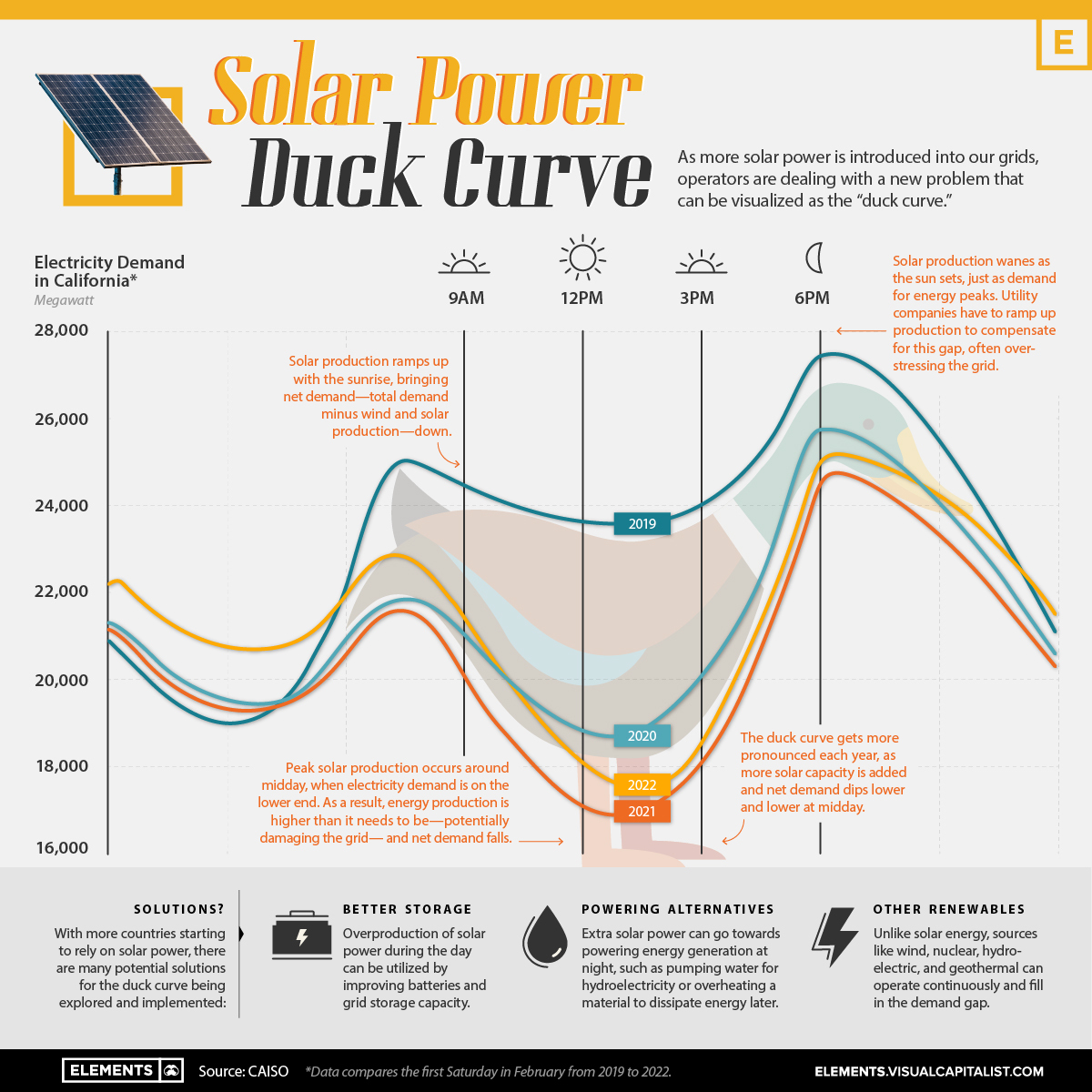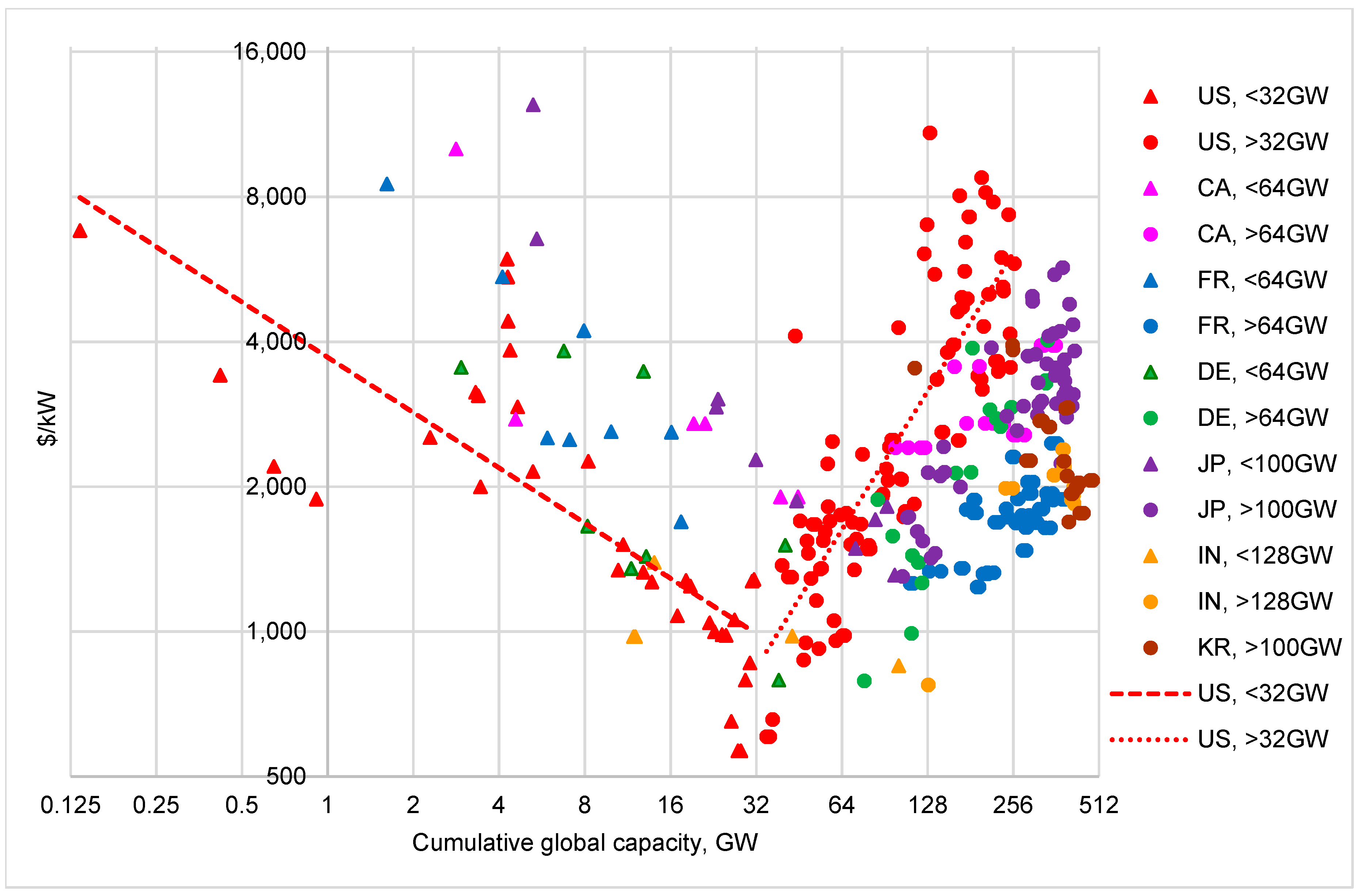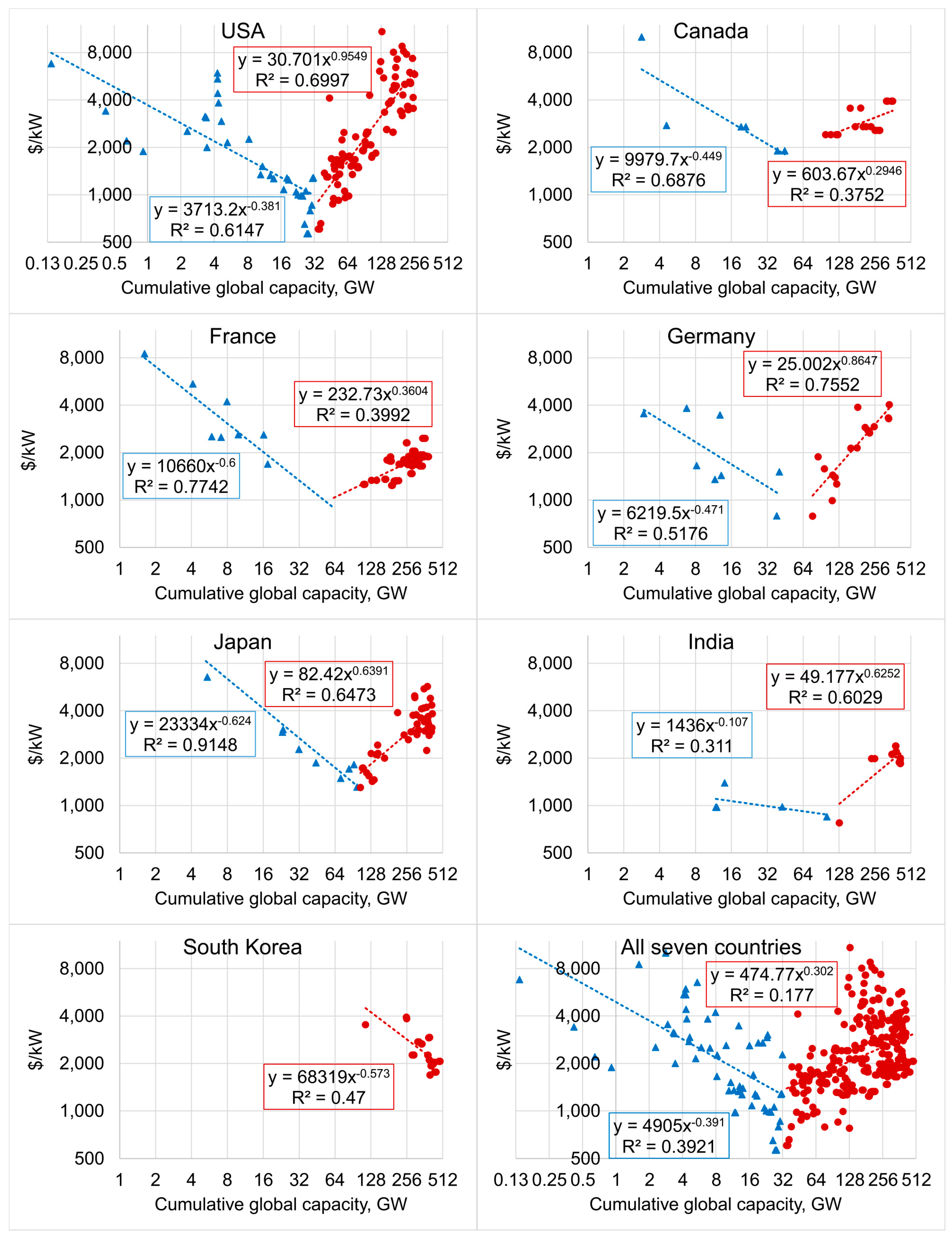|
Some of America’s poorest communities are landing clean energy projects worth billions Rural Mingo County, West Virginia, is one of America’s poorest counties. Nearly one-third of its residents live below the poverty line, only a third of its population is employed and countless lives have been upended by opioid addiction. But this community in the heart of Appalachia scored a badly needed win this April when Adams Fork Energy and CNX Resources unveiled plans to build the nation’s largest clean ammonia production facility there. The $3 billion project, set to be located on a reclaimed coal mining site, is expected to support 2,000 construction jobs and generate an influx of tax revenue. This is just one example of a struggling community that has landed a major investment in clean energy since President Joe Biden signed the Inflation Reduction Act into law exactly one year ago Wednesday. The $750 billion law — the largest climate investment in US history — has helped spark a boom in private investment, especially in clean energy, electric vehicles and batteries. Importantly, many of these clean energy projects are set to be built in communities that really need the help. Counties that have won investment in IRA-related sectors tend to be poorer than the average county, according to a Treasury Department analysis shared first with CNN. Low-wage, high poverty counties land investment For instance, almost 90% of the announced investments in IRA-related sectors are in counties with below-average weekly wages, the analysis found. More than 80% are in counties with lower college graduation rates than the national average. In Mingo County, just 9% of the residents are college graduates, well shy of the national average of 36%. “These communities are poised to reap huge benefits from new investment. New plants could bring people into the labor force who have been left behind,” the Treasury analysis finds. About two-thirds (65%) of the announced investments in IRA-related sectors are in counties with above-average poverty rates and child poverty rates, according to the research. Fayette County, Ohio, located about 40 miles southwest of Columbus, has a child poverty rate of 24.6% — well above the national average of 15.3%. But last fall, months after the IRA was signed into law, Honda and LG Energy Solution unveiled plans to create a new electric vehicle hub in Marysville, Ohio. The $4.4 billion investment is expected to create 300 new jobs and support countless existing ones. “The Treasury Department’s new analysis shows for the first time that investments in the clean energy economy are disproportionately benefitting communities that have been left behind for too long—communities where potential exists but opportunity has been scarce,” Deputy Treasury Secretary Wally Adeyemo exclusively told CNN in a statement. ‘Bang for the buck’ These investments in poorer communities are no coincidence. The Treasury notes that, in an effort to get the highest “bang for the buck,” the IRA includes incentives that provide companies bonuses when they locate clean energy generation investments in low-income and high-unemployment areas. “Making such investments in our manufacturing sector can increase economic returns for economically disadvantaged or struggling communities when the associated job creation occurs within those communities,” the Treasury paper states. That especially makes sense because many other parts of the country are dealing with a shortage of workers. Building there would only add to demand for labor. Importantly, Treasury researchers say they are not claiming the location of the investments were chosen due to the design of the IRA. The paper acknowledges it’s too early to study how effective these incentives are, noting it may be years before there is enough data to determine this. “But regardless of the reasons, the fact that IRA-related investments appear to be concentrated in lower-income places suggests that not only will these investments provide opportunity to communities that need it the most, but they will also leverage the most promising regions for national productivity growth,” Treasury researchers write. $132 billion in private investment More than 270 new clean energy projects have been announced since the passage of the IRA, generating $132 billion of private investments that are expected to create 86,000 jobs, according to a Bank of America analysis. “Thus far, this investment is not only working to strengthen supply chains but also to boost domestic manufacturing and create new jobs,” Bank of America concludes. If anything, there are concerns about how to meet all the demand for the critical minerals and copper that are central to the energy transition. Total energy transition-related demand for lithium, nickel and cobalt will be 23 times higher in 2035 than in 2021, according to an analysis released Tuesday by S&P Global. “Challenges remain in securing supply of critical minerals needed to meet growing demand and achieve its goal of accelerating the energy transition,” Daniel Yergin, vice chairman of S&P Global, said in a statement.
|
|
|
|

|
| # ? Jun 7, 2024 19:08 |
|
Here is an interesting one, from Montana. '‘This changes everything’: Experts respond to Held v. Montana climate ruling quote:(...) and a little excerpt from wiki. quote:Held v. Montana is a constitutional court case in the State of Montana regarding the right to a "clean and healthful environment in Montana for present and future generations"[3]:Art. IX, § 1 as required by the Constitution of Montana.[4][5] The case was filed in March 2020 by Our Children's Trust on behalf of sixteen youth residents of Montana, then aged 2 through 18.[6][7] On June 12, 2023, the case became the first climate-related constitutional lawsuit to go to trial in the United States.[4][5]
|
|
|
|
Can't wait for the Supreme Court to have their way with that one
|
|
|
|
PittTheElder posted:Can't wait for the Supreme Court to have their way with that one They can’t hear it. It’s based on the Montana Constitution. Now, the Montana Supreme Court…
|
|
|
|
Is there a reason we don't hear much about different batteries like AGM for household energy storage? With Lithium being somewhat more controversial than we may have been led to believe in terms of its extraction and quantities and such, it feels like there should be more alternatives in the conversation. Is it to do with the charging / discharging profile or something?
|
|
|
|
AGM have lead and sulfuric acid in them. While they won't catch fire an overvoltage failure will produce H2 gas. They can't deep cycle as often as LiFePo4 and they charge slow unless you're near the bottom SoC. They're also huge and heavy, being twice as heavy and three times the size for the same capacity. Lithium is easier to deal with than lead.
|
|
|
|
|
Dante80 posted:Here is an interesting one, from Montana. The sheer audacity to say that a courtroom is somehow an inappropriate place to bring grievances. Who are these assclowns
|
|
|
|
golden bubble posted:https://progress.institute/nuclear-power-plant-construction-costs/ Unfortunately: https://arstechnica.com/science/2020/11/why-are-nuclear-plants-so-expensive-safetys-only-part-of-the-story/ quote:“But many of the US' nuclear plants were in fact built around the same design, with obvious site-specific aspects like different foundation needs. The researchers track each of the designs used separately, and they calculate a "learning rate"—the drop in cost that's associated with each successful completion of a plant based on that design. If things went as expected, the learning rate should be positive, with each sequential plant costing less. Instead, it's -115 percent. I still contend that the utility financial model. "we make a profit no matter how bad we screw up" is the reason here.
|
|
|
|
VideoGameVet posted:I still contend that the utility financial model. "we make a profit no matter how bad we screw up" is the reason here. They don't make a profit no matter how bad they screw up. https://www.reuters.com/article/us-...e-idUSKBN17Y0CQ Duke Energy seems to be serious about replacing coal plants with modular nuclear, which is good: https://www.power-eng.com/nuclear/duke-energy-proposes-site-for-new-nuclear-in-north-carolina/
|
|
|
|
Phanatic posted:They don't make a profit no matter how bad they screw up. Well, apparently they do in LA/San Diego. The San Onofre thing for one.
|
|
|
|
been meaning to post this, apparently both Fukishima Japan and NY whatever are both trying to release some waste water and just hearing the piss poor reporting from the news is maddening. like not explaining what tritium is , etc. like what do you do with this level of ignorance or hostile stupidity
|
|
|
|
All the reporting about Fukushima is maddening.
|
|
|
|
aniviron posted:All the reporting is maddening.
|
|
|
|
aniviron posted:All is maddening.
|
|
|
|
the fukushima thing is especially egregious because it's becoming a china v japan thing which means that a weird crowd of extremely shallow online leftists are now completely against the release of the water to score points for daddy xi
|
|
|
|
On the other hand having taken a peak at the reddit thread about it in r/Japan the other side of that coin is quite symmetrical in its cringe.
|
|
|
|
Now that you could not pay me to drink from
|
|
|
|
A nice article on ScienceNews about Grid-forming inverters.quote:How one device could help transform our power grid
|
|
|
|
That duck analogy is impressively stupid and unnecessary.
|
|
|
|
Electricity people just loving love duck analogies for ao e reason
|
|
|
|
mobby_6kl posted:Electricity people just loving love duck analogies for ao e reason That's a very impressive bill though.
|
|
|
|
mobby_6kl posted:Electricity people just loving love duck analogies for ao e reason I’ve mentioned this before but NREL has done some work on this and one trick in the us would be to build out east west HVDC transmission lines. West coast solar covers east coast evenings and plains wind picks up west coast in the evening.
|
|
|
|
how many scientific studies do i have to show to an anti-nuclear person before they either start absorbing information, get a better argument than "tell that to the 50 people's that died families," or give me a source? help me d&d
|
|
|
|
For most, no amount of studies or science will change anything. If the data mattered in public opinion, we wouldn't be where we are. Sometimes you can turn people around, but generally in my experience it has to be someone who you can talk into submission over time. I brought my dad around; it took years and I wouldn't call him pro-nuclear now but at least he's not anti-nuclear either.
|
|
|
|
There's a lot of statistics about how particulate emissions from coal plants (and cars and other industry) have killed immense numbers of people, but those deaths are not highly visible and are mostly things like someone who was sick dying several years earlier than expected (so the death isn't reported as "from particulate pollution"). The numbers in terms of years of life lost from particulates are to me the most convincing thing, but I don't know if you'd be able to convince someone without a background that makes understanding these things easier. Honestly they can sound kind of bullshit, because if they are killing so many why have we done and heard so little?
|
|
|
|
|
How China became the king of new nuclear power, and how the U.S. is trying to stage a comeback https://www.cnbc.com/2023/08/30/how-china-became-king-of-new-nuclear-power-how-us-could-catch-up.html China is the breakaway global leader in new nuclear construction. China has 21 nuclear reactors under construction which will have a capacity for generating more than 21 gigawatts of electricity, according to the International Atomic Energy Agency. That is two and a half times more nuclear reactors under construction than any other country. India has the second largest nuclear buildout right now, with eight reactors under construction that will be able to generate more than six gigawatts of electricity. Third place Turkey has four nuclear reactors under construction with a presumed capacity of 4.5 gigawatts. The United States currently has one nuclear reactor under construction, the fourth reactor at the Vogtle power plant in Georgia, which will be able to generate just over 1 gigawatt. (For the sake of comparison, a gigawatt is about enough to power a mid-sized city.) “China is the de facto world leader in nuclear technology at the moment,” Jacopo Buongiorno, professor of nuclear science and engineering at the Massachusetts Institute of Technology, told CNBC. China is “the determined and pacing leader in global nuclear ambition at the moment,” agrees Kenneth Luongo, president and founder of the Partnership for Global Security, a nuclear and transnational security and energy policy non-profit. China is “leading, even racing ahead,” Luongo said. It hasn’t always been that way. The United States’ existing fleet of nuclear reactors is a testament to its prior dominance. The United States has 93 nuclear reactors operating with capacity to generate more than 95 gigawatts of electricity, according to the IAEA That is more than any other country by far. Many of those reactors should be viable for some time to come, as nuclear reactors can be licensed to operate for 60 years and in some cases for as long as 80 years, the World Nuclear Association said in a recent report on the nuclear supply chain. The country with the next most operating nuclear reactors is France, with 56 and a capacity for generating more than 61 gigawatts, according to the IAEA. China comes in third with 55 operating reactors and capacity of over 53 gigawatts. “It is generally agreed that the U.S. has lost its global dominance in nuclear energy. The trend began in the mid-1980s,” Luongo told CNBC. China was just getting started as the United States nuclear industry began to take a back seat. “China began building its first reactor in 1985, just as the U.S. nuclear build-out began a steep decline,” Luongo told CNBC. How did China become the new nuclear leader? Power follows demand, so the new nuclear reactors tend to be built where fast-developing economies need power to fuel their growth. While more than 70 percent of existing nuclear capacity is located in countries that are part of the Organization for Economic Cooperation and Development, nearly 75 percent of the nuclear reactors currently under construction are in non-OECD countries, and half of those are in China, according to the World Nuclear Association’s recent supply chain report. As China’s economy has grown, so too has its energy output. China’s total energy output reached 7,600 terawatt hours in 2020, a massive increase from 1,280 terawatt hours in 2000, according to the U.S. Energy Information Administration. “The primary imperative is to meet what has been a staggering growth in demand over the past twenty years,” John F. Kotek, senior vice president of policy development and public affairs of the nuclear advocacy group, the Nuclear Energy Institute, told CNBC. “So they haven’t just been building a lot of nuclear, they’ve been building a lot of everything.” Currently, nuclear energy accounts for only 5 percent of the total amount of electricity produced in the country, while coal still accounts for about two-thirds, according to the International Energy Agency. But China’s use of coal to meet its surging demand for electricity has caused a secondary problem: dirty air. “With the huge growth in coal use, along with a dramatic increase in private vehicle ownership, has come a dire need for more clean electricity generation,” Kotek told CNBC. Nuclear energy generation does not release any of the greenhouse gasses that contribute to air pollution and global warming, so China has turned to nuclear as a way to produce large quantities of clean energy fast. “The Chinese have been pro-nuclear for a long time, but now they seem to have committed to a truly massive scale up to 150 gigawatts in 15 years. And they seem to be on track to meet that goal,” Buongiorno told CNBC. “This will be the largest expansion of nuclear capacity in history, by far,” Buongiorno said. China kickstarted its nuclear program by buying reactors from France, the United States and Russia, Luongo told CNBC, and built primary homegrown reactor, the Hualong, with cooperation with France. One reason for China’s dominance is the government’s strong control over the energy sector, and most of the economy. “They built a state-supported, financed industry that allows them to build multiple nuclear units at lower cost,” Luongo told CNBC. “They don’t have any secret sauce other than state financing, state supported supply chain, and a state commitment to build the technology.” China’s focus on building nuclear energy has global climate benefits, but it also poses ge-political challenges. “China’s prowess and commitment to nuclear is good for the technology, for China’s energy security, grid stability, economy and air pollution, as well as global climate change mitigation,” Buongiorno said. “If they start to export nuclear technology to other countries, the concern is the geo-political-economic dependence on China that such projects will create for those countries. The same logic applies to Russia.” U.S. pinning its future on advanced nuclear tech The United States could catch up and regain some of its former dominance in the nuclear space, experts say. The United States and Europe have slowly started to build nuclear energy again with middling success. “These countries restarted building nuclear plants only 10 to 15 years ago. The supply chain and specialized workforce had virtually disappeared, which has resulted in serious cost overruns and schedule delays,” Buongiorno said. To wit, the two large new nuclear reactors at the Vogtle Plant in Georgia have become infamous for taking much longer than initially expected and blowing through early budget estimates. But the U.S. is making moves to regain its previous dominance in the nuclear space. “The U.S. has reversed its political opposition to nuclear power at home. It now is a rare issue of bipartisan agreement,” Luongo told CNBC. A recent survey from the Pew Research Center found support for nuclear energy is up among both Democrats and Republicans: 57 percent of Americans report favoring more nuclear reactors to generate electricity, up from 43 percent of Americans who favored nuclear reactors in 2020. The U.S. is providing subsidies to keep some existing nuclear plants open, selling some large nuclear reactors to eastern Europe. But the country pinning much of its ambition on scaling up the market for small modular and advanced reactor technology and building the associated fuel enrichment capacity. “The US may catch up if the new technologies being developed here — small modular reactors and microreactors above all — will prove to be technically and commercially successful, which is currently uncertain,” Buongiorno told CNBC. Smaller nuclear reactors are less expensive because they are smaller, but also because the modular design allows for component parts to be made in a factory and put together on site. That process is faster and cheaper than building each reactor as a boutique one-off. The NuScale small modular reactor and Westinghouse AP300 are scaled-down light-water reactors, which is the design most conventional nuclear reactors are using, while some other small modular reactor designs are “more exotically fueled and cooled,” Luongo said, like the TerraPower Natruim Reactor or the X-Energy high-temperature gas cooled reactors. “The U.S. government is pouring billions of dollars into their development and demonstration in the anticipation that they will work, be less expensive than large reactors, and provide the U.S. with a larger market for their export,” Luongo told CNBC. “We’ll see where we are by 2027 when Congress has mandated the demonstration phase. Delays and cost growth in some technologies are already popping up.” In addition to being smaller and cheaper to build, small modular reactors are well suited for providing heat for industrial processes, Kotek of the Nuclear Energy Institute told CNBC. Part of the United States’ attempting to re-ignite its nuclear industry is also its desire to be an exporter of nuclear reactor technology. “The U.S. has decided that it is at a disadvantage in the nuclear export arena and is trying to reposition itself to be a major competitor in the next 15 years. This began with the Trump administration and Biden has amped it up,” Luongo told CNBC. Some of this export business will be large nuclear reactors, like those being sold to Eastern Europe, but “a significant part of this strategy is small modular and advanced reactors,” Luongo said. Here, again, the U.S. is up against China. “China rightly views nuclear energy as a strategic industry. They know that nuclear energy exports help build long-term relationships with partner countries. So they have invested heavily in their domestic nuclear energy capabilities and are now seeking to export their reactor designs to other nations,” Kotek told CNBC. China and Russia both offer “very attractive financing” and other kinds of incentives to spread their nuclear industry aboard, Kotek said. For the United States to win the export business, it must prove it can put steel in the ground in the United States. “The U.S. is widely recognized to offer world-leading nuclear energy technology, but having great designs on paper is not enough – most other nations want to see that technology demonstrated before they will consider building it in their country,” Kotek told CNBC. “So the U.S. would be wise to incentivize an accelerated build-out of next-generation nuclear energy systems here at home, so that we’re in a position to take proven designs into the global marketplace and take back our position as the world’s top nuclear energy exporter.” Jockeying for the top spot in the international nuclear industry is going to get more intense as demand for clean energy continues to climb. “We and our close nuclear energy allies are at what I think is just the start of a fierce competition for supremacy in global nuclear energy export markets,” Kotek said.
|
|
|
|
aniviron posted:For most, no amount of studies or science will change anything. If the data mattered in public opinion, we wouldn't be where we are. It's like road traffic deaths vs air traffic deaths. Trying to convince someone with a fear of flying that planes are safe by simply quoting statistics at them probably won’t do it and getting people to wear seatbelts was a years long cultural war with the government using regulations, fines and information campaigns to eventually make it the norm.
|
|
|
|
floppyspud posted:how many scientific studies do i have to show to an anti-nuclear person before they either start absorbing information, get a better argument than "tell that to the 50 people's that died families," or give me a source? help me d&d “It is useless to attempt to reason a man out of a thing he was never reasoned into.”
|
|
|
|
i just cannot wrap my head around it. 100 people dying in a nuclear accident means we should never touch the technology again, but 250,000 in a dam failure and its the power of the future? im not anti hydro, it was the fault of really bad engineering, just like... shouldnt that just obviously be contradictory? literally the only source ive seen used is a french one that used 14 leukaemia cases near 19 plants to show that it had a noticeable impact... original: https://pubmed.ncbi.nlm.nih.gov/22223329/ response: https://www.ncbi.nlm.nih.gov/pmc/articles/PMC4267445/ you guys like sources, right? sorry i just wanted to rant a bit
|
|
|
|
floppyspud posted:i just cannot wrap my head around it. 100 people dying in a nuclear accident means we should never touch the technology again, but 250,000 in a dam failure and its the power of the future? im not anti hydro, it was the fault of really bad engineering, just like... shouldnt that just obviously be contradictory? It's because they think if their electrons don't come from nuclear, they won't get glassed in WWIII.
|
|
|
|
I suspect as well that a fair degree of the fear comes from being unable to understand intuitively what the risks of radiation are. To use examples from the last few posts, it's a more extreme version of both the airplane/car risk factor, as well as flooding. Intuitively nearly anyone can grasp the idea of a car. There's nothing to fear, nature has prepared us for these circumstances, basically - sure, you're going faster than you might otherwise, you may not understand how internal combustion works, but largely the mechanics are obvious. Planes, however, seem to defy the established rules that thousands of years evolving on the savanna prepared us for; hence the fear. Radiation is a more extreme example of this. Once again citing the example from a few posts up, a catastrophic flood is something which doesn't even take a human brain to comprehend. A person, seeing water and large structures, feels that they can understand the reality of a situation and the danger it poses even if they acknowledge that there is still risk. Radiation, however, is an almost totally abstract concept. I don't think I know a single person in the flesh who knows what the difference between alpha, beta, and gamma radiation is, and I would hazard that many aren't even aware that there are different types of radiation. Radiation is like chemistry, to the average person - if you ask them to draw it you get beakers and people in lab coats and invisible death rays which can't be detected, or glowing green poo poo. Even if it's possible to intellectually understand nearly everything about radiation and nuclear physics, on an intuitive level humans simply do not grasp these concepts, and thus, they are scary.
|
|
|
|
aniviron posted:I suspect as well that a fair degree of the fear comes from being unable to understand intuitively what the risks of radiation are. To use examples from the last few posts, it's a more extreme version of both the airplane/car risk factor, as well as flooding. Intuitively nearly anyone can grasp the idea of a car. There's nothing to fear, nature has prepared us for these circumstances, basically - sure, you're going faster than you might otherwise, you may not understand how internal combustion works, but largely the mechanics are obvious. Planes, however, seem to defy the established rules that thousands of years evolving on the savanna prepared us for; hence the fear. huh, ive never heard it explained that way, but now that ive heard it its obvious. my best hopes are that people (or at least governments) will open up to it over time, with chinas nuclear program (hopefully) being a good example that new reactors are a good thing. cus i would bet quite a few  that without a solid nuclear backbone humanity wont be able to transition to renewables in time. that without a solid nuclear backbone humanity wont be able to transition to renewables in time.
|
|
|
|
aniviron posted:I suspect as well that a fair degree of the fear comes from being unable to understand intuitively what the risks of radiation are. To use examples from the last few posts, it's a more extreme version of both the airplane/car risk factor, as well as flooding. Intuitively nearly anyone can grasp the idea of a car. There's nothing to fear, nature has prepared us for these circumstances, basically - sure, you're going faster than you might otherwise, you may not understand how internal combustion works, but largely the mechanics are obvious. Planes, however, seem to defy the established rules that thousands of years evolving on the savanna prepared us for; hence the fear.  " since you don't really see or feel anything. What does this rate do anyway, increase the cancer risk by 1% from the baseline 0.01% or what? " since you don't really see or feel anything. What does this rate do anyway, increase the cancer risk by 1% from the baseline 0.01% or what? Obviously if it's bad enough to cause acute radiation sickness or b burns that's another matter.
|
|
|
|
bad_fmr posted:“It is useless to attempt to reason a man out of a thing he was never reasoned into.” Yup it is that. Very few people are seriously Anti-Nuclear (or pro-nuclear), in the sense that they would even consider voting single issue for an anti-nuclear group that they otherwise disagree with. They agree with political movements that are anti-nuclear, for unrelated reasons. And while many people are ready to look up some anti-nuclear talking points if you challenge them to discuss it, they don't really care much about them. Most recent big Anti-Nuclear boom I saw here in Germany was in spring when Isar2 was shut down. If you hadn't followed it the pro-nuclear political organisations had all reacted by declaring that being pro-nuclear is synonymous with supporting fossil car subsidies. I am bring that up because the people who reacted by changing their stance on nuclear Power to align with their stance on cars massively outnumber the people who aligned their stance on cars to match their stance on nuclear. This is not a thought process that can be countered with pointing to studies about nuclear power. Nuclear is just not considered politically important.
|
|
|
|
VictualSquid posted:Nuclear is just not considered politically important. do you think thats a problem? or something that will change over time.
|
|
|
|
floppyspud posted:do you think thats a problem? or something that will change over time. I don't think that it is a problem, but in practice it will mean that any future clean European grid will have to do without nuclear plants in Germany. Not a problem for me as I am in favour is complete grid integration, but others disagree. I don't think it will change for the foreseeable future. There is no major movement dissatisfied with the current status.
|
|
|
|
aniviron posted:Even if it's possible to intellectually understand nearly everything about radiation and nuclear physics, on an intuitive level humans simply do not grasp these concepts, and thus, they are scary. I think humans are sort of primed to fear the intangible and unseen. The discourse around "chemicals" and "processed food" is much the same in that the labels are often meaningless in the context given but are more used to invoke an emotional response. It's artificial and unnatural and therefore, by logic, bad. Similarly GMOs and pesticides. Yes, like everything else it's potentially harmful and dangerous absent regulation and care but it doesn't make sense to generalize either. Banning them is a perfectly valid choice but we need to be honest and acknowlede the consequences. If we ban drought resistant rice then we will grow less rice. If we ban all pesticides then we'll need to clear more land for agriculture. If we ban nuclear from the energy transition then we'll need to pay for a different grid that can do different things.
|
|
|
|
Some things become markers of tribal identity rather than considered policies. If you recon yourself a Green you "have to" oppose nuclear power and be a NIMBY about onshore wind.
|
|
|
|
Owling Howl posted:If we ban drought resistant rice then we will grow less rice. If we ban all pesticides then we'll need to clear more land for agriculture. If we ban nuclear from the energy transition then we'll need to pay for a different grid that can do different things. I think the general answer given to these consequences is that we should simply take the wealth off the billionaires and therefore we would have all we need without GMO/Nuclear/Pesticides/onshore wind/fossil fuels.
|
|
|
|

|
| # ? Jun 7, 2024 19:08 |
|
Pesticides are only intangible and unseen if your only exposure to farming is the grocery store - they cause all the same problems as any other use of fossil fuels. GMOs are essentially synonymous with pesticides, because a lot of the promises of drought resistant crops have ended up being moonshine. And there’s a host of medical objections to processed foods. These are topics where there’s still quite a bit of real scientific controversy over their merits. I’m not sure including them in that list really supports the argument that people are ignorant and just fear the unknown.
Kaal fucked around with this message at 19:19 on Aug 31, 2023 |
|
|







 Yes, it's like a lava lamp.
Yes, it's like a lava lamp.



























